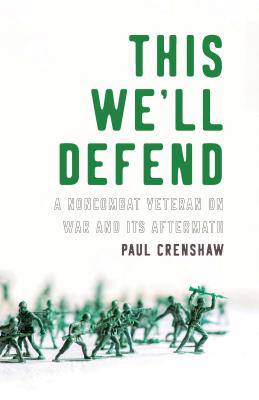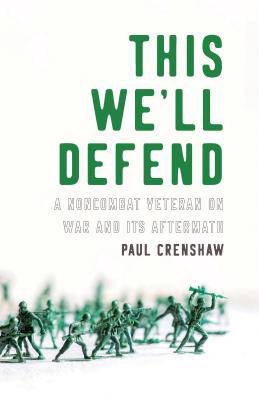
- Afhalen na 1 uur in een winkel met voorraad
- Gratis thuislevering in België vanaf € 30
- Ruim aanbod met 7 miljoen producten
- Afhalen na 1 uur in een winkel met voorraad
- Gratis thuislevering in België vanaf € 30
- Ruim aanbod met 7 miljoen producten
Omschrijving
In June 1990, Paul Crenshaw shipped out for basic training for the National Guard. By August, Saddam Hussein had invaded Kuwait. Each day brought more news of mobilizing forces. For weeks, Crenshaw was told he was going to war, but after graduation, he went back home to Arkansas and watched CNN every night, lying about how much he wished he had been deployed.
Later, after Crenshaw had gotten out of the army, he began to question the reasons for the wars we fight. The essays here follow his time in the service, from Basic Training to weekend National Guard drills and the years after. Crenshaw moves from eager recruit to father worrying that his daughters might enlist. He watches the airplanes strike the Twin Towers and sees two new wars ignite out of the ashes of the old. He writes as a soldier who did not see combat but who wonders what constant combat might do to U.S. soldiers, how it affects them, and how the wars we fight affect us all. These essays reflect deeply on American culture and military life--how easily we buy into ideas of good versus bad, us versus them; how we see soldiers as heroes when more often than not they are young boys barely old enough to shave; how many return home broken while we only wave our flags instead of trying to fix them and the ideas that sent them to war.
Specificaties
Betrokkenen
- Auteur(s):
- Uitgeverij:
Inhoud
- Aantal bladzijden:
- 208
- Taal:
- Engels
Eigenschappen
- Productcode (EAN):
- 9781469651071
- Verschijningsdatum:
- 16/09/2019
- Uitvoering:
- Paperback
- Formaat:
- Trade paperback (VS)
- Afmetingen:
- 137 mm x 211 mm
- Gewicht:
- 90 g

Alleen bij Standaard Boekhandel
Beoordelingen
We publiceren alleen reviews die voldoen aan de voorwaarden voor reviews. Bekijk onze voorwaarden voor reviews.









